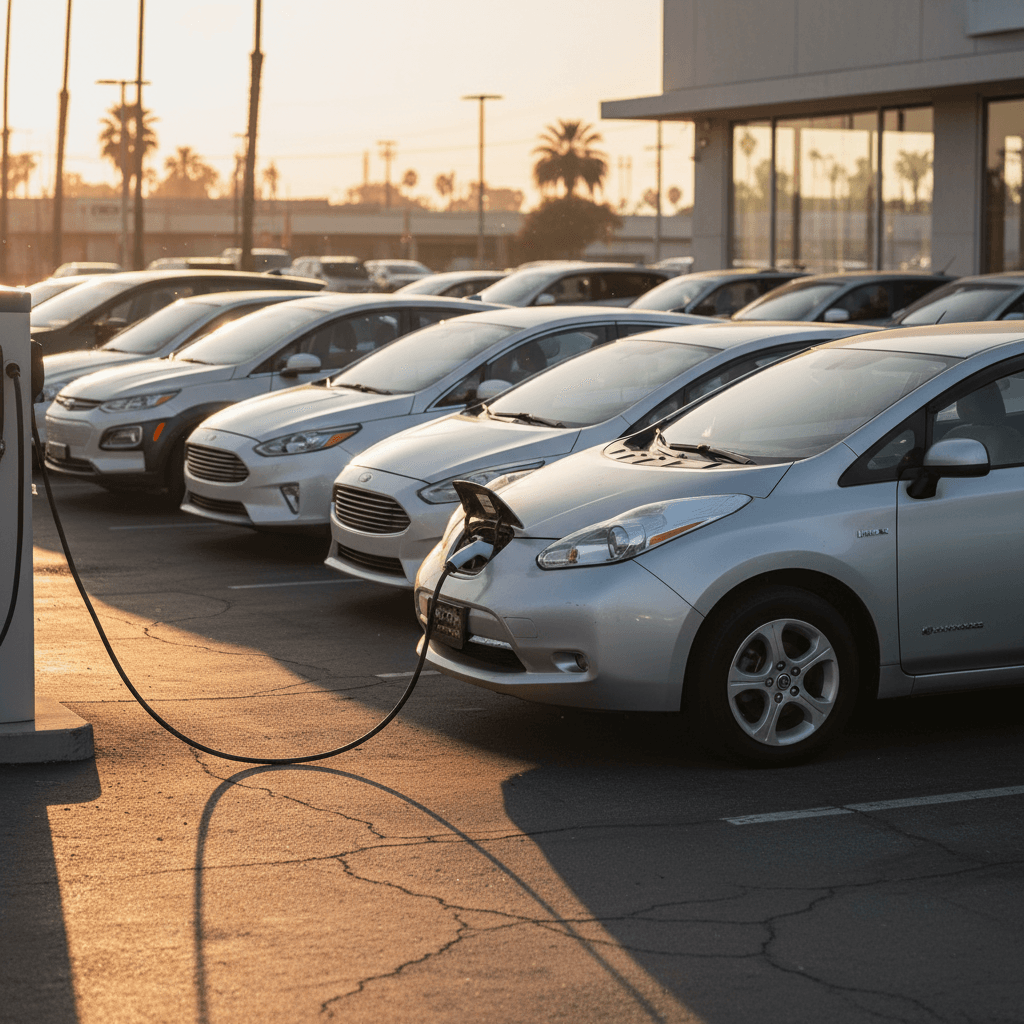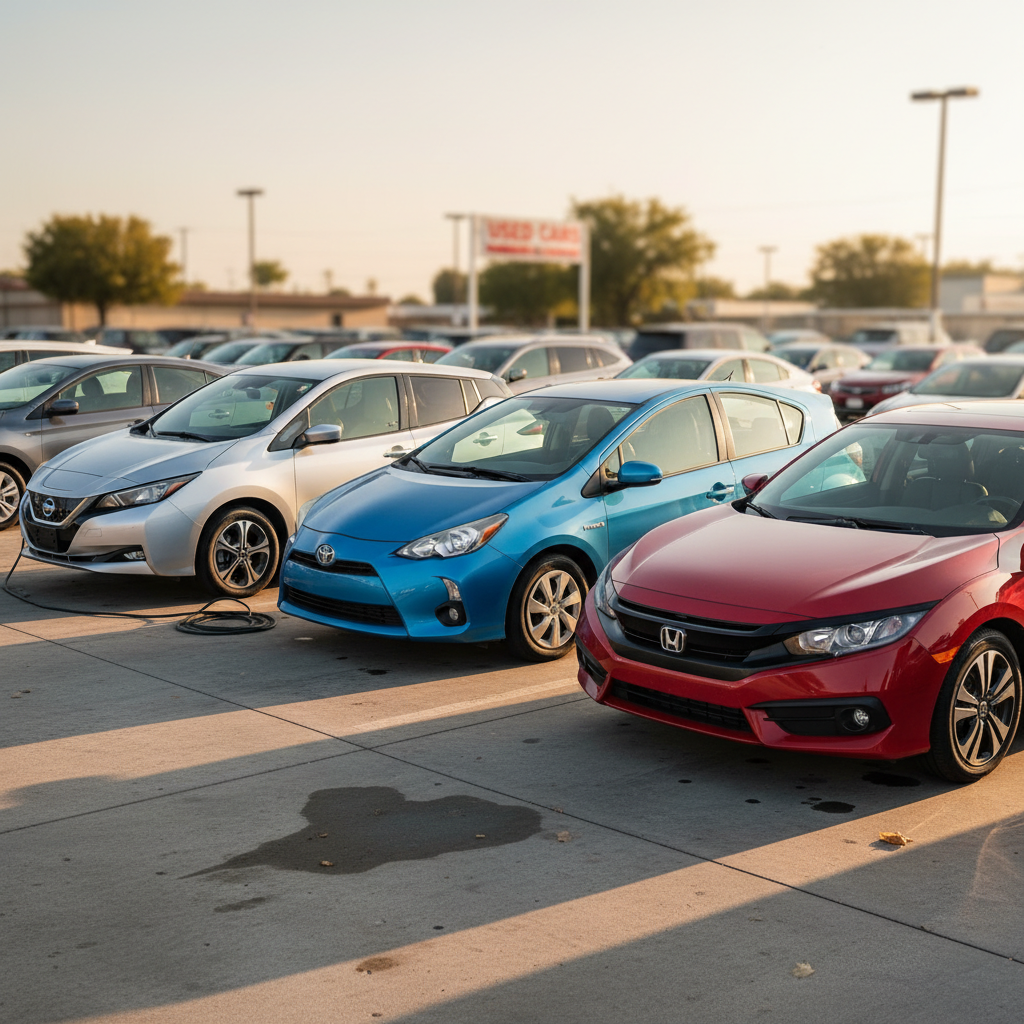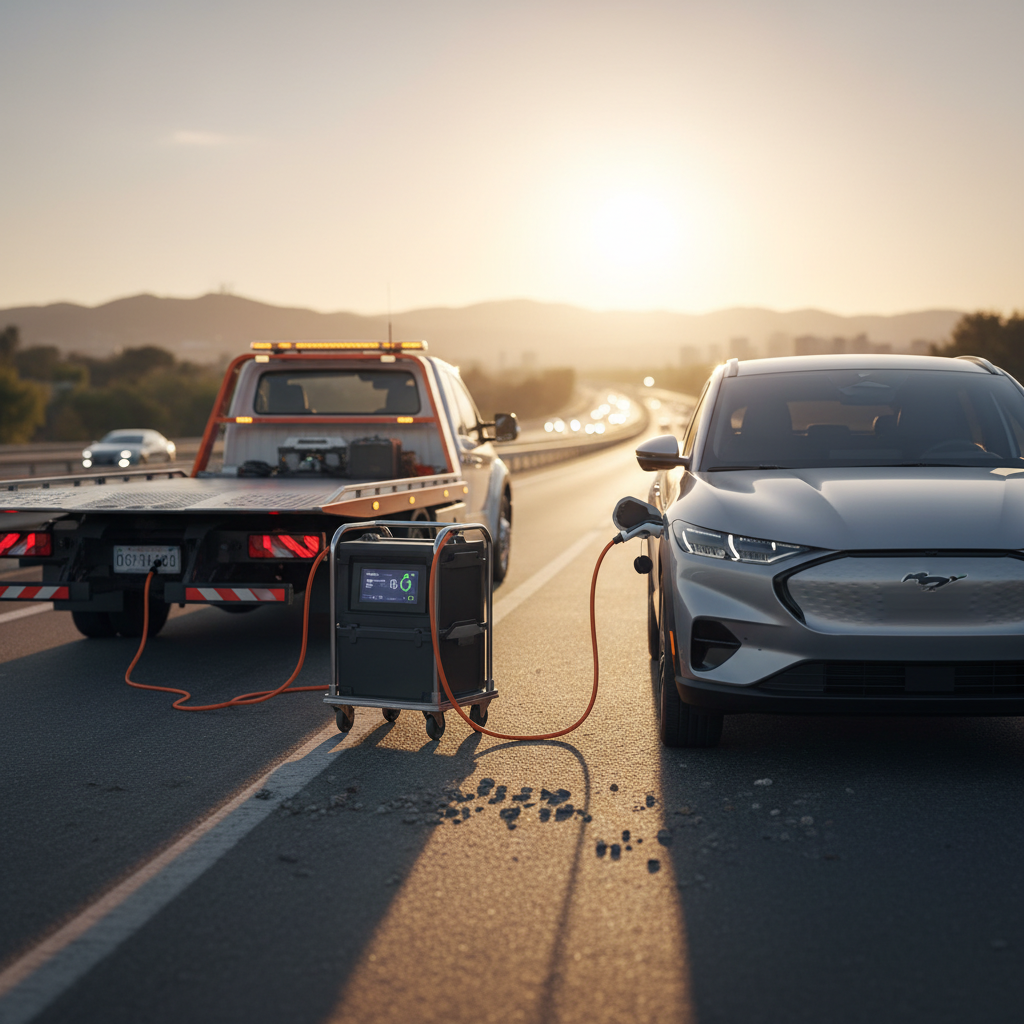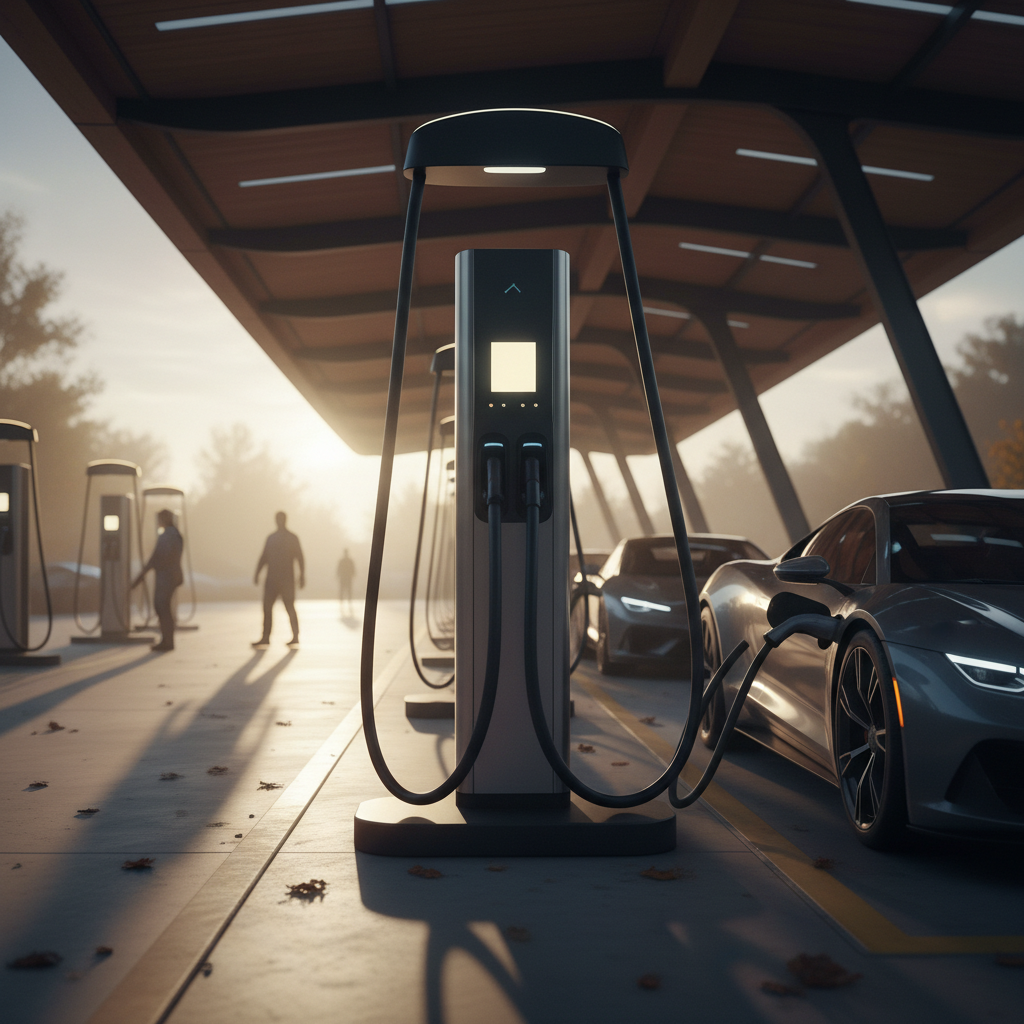If your budget tops out at $20,000 in 2025, you’re in better shape than you might think. After a wild few years, used-car prices are finally stabilizing, and used electric cars in particular have gotten significantly cheaper, making the field of the best used cars under $20K more interesting than it’s been in a decade.
Key takeaway
Why $20K Is a Sweet Spot in 2025
What $20K Buys You in 2025
From 2022 to early 2025, used EV prices fell more than 40%, while gas and hybrid prices dipped only modestly. That means a budget that used to lock you into older, high-mileage sedans can now stretch to late-model hybrids and EVs with advanced safety systems, smartphone integration, and lower running costs.
Think monthly, not just sticker price
Quick Glance: Best Used Cars Under $20K
Best Used Cars Under $20K by Category
Use this as a starting point, local inventory and prices will vary.
Best All-Rounder (Gas)
2018–2021 Toyota Camry
Reliable, comfortable, widely available. Look for LE or SE trims with full safety suite.
Best MPG Hybrid
2017–2020 Toyota Prius
40–50+ mpg, huge cargo area, proven powertrain. Ideal if you drive a lot.
Best Value EV
2017–2020 Nissan Leaf or 2017–2019 Chevy Bolt EV
Some of the lowest entry prices into all‑electric driving.
Best Picks Under $20K by Use Case
Match the car to how you’ll actually use it.
Long Highway Commute
Honda Accord (2018–2021) or Toyota Camry (2018–2021)
Comfortable, efficient, and better at high‑speed cruising than most subcompacts.
Mostly City Driving
Toyota Corolla (2018–2022) or Nissan Leaf (2017–2020)
Easy to park, cheap to run, and plenty for errands or short commutes.
Growing Family
Toyota RAV4 (2016–2019) or Honda CR‑V (2016–2019)
Compact SUVs with good safety scores and enough room for seats and strollers.
Best Used Gas Cars Under $20K
If you prioritize simplicity, widespread service options, and long-term durability, a conventional gas car still makes sense. Under $20,000 in 2025, your best bets are mainstream sedans and compact SUVs from brands with a strong reliability record.
1. Toyota Camry (2018–2021) – Best All-Rounder
- Why it’s a top pick: Legendary reliability, comfortable ride, and strong resale value, even if you sell it later, make the Camry a safe bet.
- What to look for: LE or SE trims with Toyota Safety Sense (TSS), which adds adaptive cruise control and lane-keeping assist.
- Realistic pricing: Well-kept 2018–2019 models with reasonable miles commonly list in the mid-to-high teens, leaving room in your $20K budget for taxes and fees.
2. Honda Accord (2018–2021) – Best Highway Commuter
- Why it’s a top pick: Sportier driving feel than most rivals, roomy back seat, and strong safety scores.
- What to look for: EX or Sport trims with the 1.5T engine for a good balance of power and efficiency.
- Realistic pricing: Many 2018–2020 examples sit just under or around $20K depending on mileage and region.
3. Toyota Corolla (2018–2022) – Best for Tight Budgets
- Why it’s a top pick: Simple, super-efficient, and cheaper to insure than many larger sedans or SUVs.
- What to look for: 2019+ models got more standard safety tech and a nicer interior; hatchback versions add cargo flexibility.
- Realistic pricing: It’s common to see late‑teens Corollas well under $18K, especially with higher mileage.
4. Compact SUVs: Toyota RAV4 & Honda CR‑V (2016–2019)
If you need more cargo space or all‑weather confidence, older compact SUVs squeeze under $20K, especially with higher mileage or base trims.
- Why they’re top picks: Strong reliability history, high seating position, and good crash performance.
- What to look for: Service records, especially for transmission and all‑wheel‑drive systems. Avoid neglected examples; SUVs often lead harder lives than sedans.
- Realistic pricing: Clean 2016–2018 models often list between $16K and $20K; prices rise for newer, low-mileage examples.
Watch for rust and accident repairs
Best Used Hybrids Under $20K
Hybrids are the bridge between traditional gas cars and EVs: familiar to own, yet dramatically more efficient. Under $20,000, you’re mainly looking at compact hybrid sedans and hatchbacks with proven track records.
5. Toyota Prius (2017–2020) – MPG Champion
- Why it’s a top pick: 45–55 mpg in real-world driving, massive hatchback cargo space, and Toyota hybrid systems that routinely cross 200,000 miles.
- What to look for: A full maintenance history and a hybrid battery inspection. Don’t ignore cosmetic wear, these are often used hard as rideshare or delivery cars.
- Realistic pricing: Earlier in this range, high-mileage cars can dip well below $15K; nicer, lower-mileage examples push closer to $20K.
6. Toyota Camry Hybrid / Honda Accord Hybrid
If you want hybrid efficiency but prefer a mid-size sedan, the Camry Hybrid and Accord Hybrid offer more power and comfort than a Prius while still delivering 40+ mpg.
- Why they’re top picks: Great blend of space, comfort, and efficiency; ideal if you commute long distances but also take road trips.
- What to look for: 2018+ model years with full active safety features and a clean title. Ask specifically about hybrid system and brake maintenance.
- Realistic pricing: Earlier in this generation (2018–2019) often slip under $20K depending on miles and trim.
Hybrid vs. EV at this price
Best Used Electric Cars Under $20K
Here’s where 2025 gets interesting. Used EV prices have fallen much faster than gas cars. Models like the Kia Niro EV, Chevy Bolt EV, and Nissan Leaf now undercut many gas cars on price while offering far lower running costs. The trade-off is range and charging access, so they’re best if your daily driving is predictable and you have somewhere to charge.
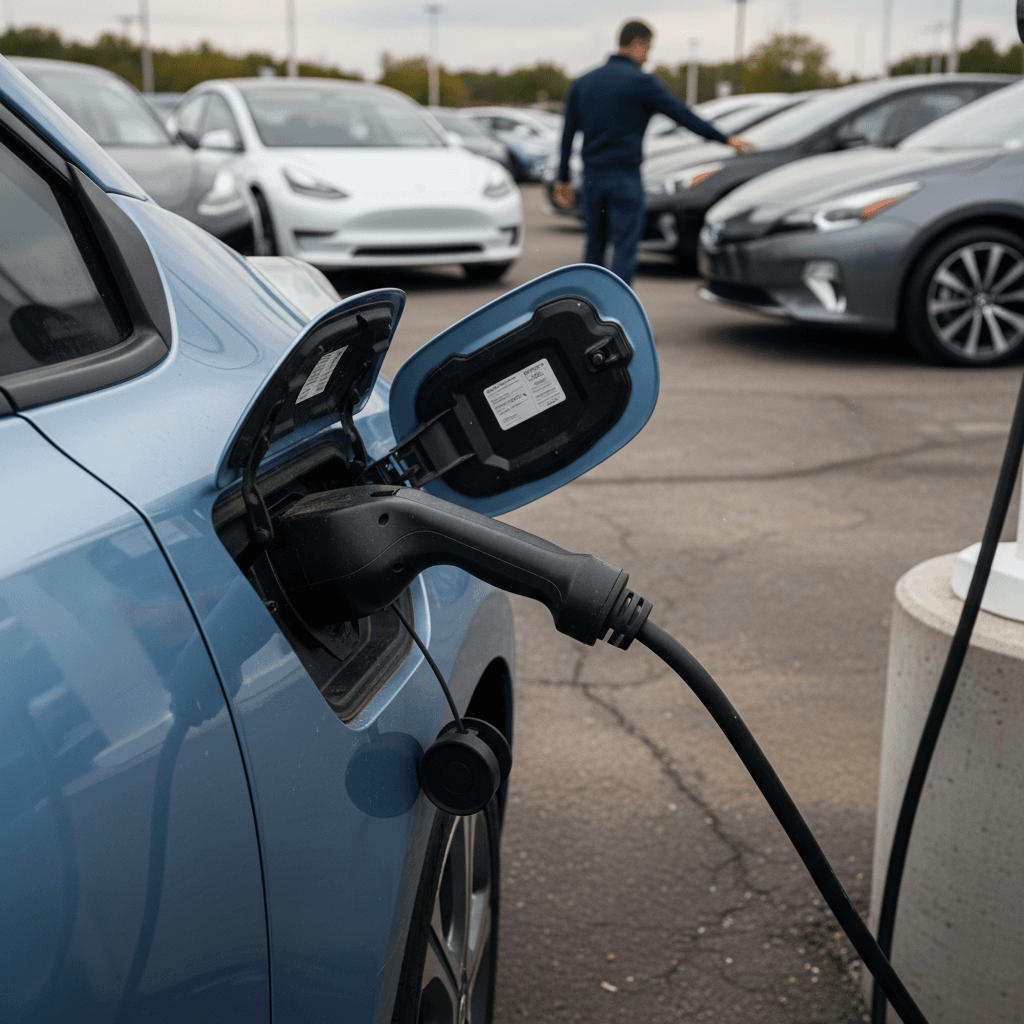
7. Nissan Leaf (2017–2020) – Cheapest Entry to EVs
- Why it’s a top pick: Leaf values have fallen hard, which is bad news for first owners but great news if you’re buying one used. It’s quiet, simple, and perfect for short commutes and errands.
- What to look for: Battery health is everything. Earlier Leafs used air‑cooled batteries that can lose range in hot climates. Prioritize cars from cooler regions and always get a battery health report.
- Realistic pricing: Older second‑generation Leafs are frequently well under $15K; even nicer examples often stay under the $20K cap.
8. Chevrolet Bolt EV (2017–2019) – Best Range per Dollar
- Why it’s a top pick: Compact footprint with genuinely usable range, often 230+ miles when new, which is far more flexible than early Leafs.
- What to look for: Confirm recall work for the battery has been completed and ask for documentation. Check DC fast‑charging history; heavily fast‑charged cars may have more battery wear.
- Realistic pricing: Early Bolts commonly land in the mid‑teens today, depending on miles and condition, and can be one of the best used electric cars under $20K.
9. Kia Niro EV / Hyundai Kona Electric – Crossover-Style Value
The Kia Niro EV and Hyundai Kona Electric combine decent range with a crossover-like body style. They’ve seen steep price drops from their original MSRPs, which now makes them compelling at used‑car prices.
- Why they’re top picks: They feel more like conventional compact crossovers than quirky science projects, which makes the EV transition easier for many drivers.
- What to look for: DC fast‑charging capability, up‑to‑date software, and a clear service history. As with any EV, prioritize battery health over cosmetic perfection.
- Realistic pricing: In many markets, earlier Niro EVs and Konas are edging close to the $20K mark as of late 2025, especially with higher mileage.
10. Used Tesla Model 3 – Stretch Pick Near $20K
Tesla’s aggressive new‑car price changes and a wave of off‑lease cars have pushed older Model 3 prices down faster than the overall market. In some regions, high‑mileage early Model 3s are now hovering around the low‑twenties, and occasionally dipping under $20K.
- Why it’s interesting: Access to Tesla’s Supercharger network (especially as NACS becomes the standard), strong performance, and over‑the‑air updates.
- What to look for: Avoid cars with sketchy repair histories or salvage titles, and pay close attention to battery and motor warranty coverage. Cosmetic issues are less important than drivetrain health.
- Realistic pricing: In the U.S., seeing a sub‑$20K Model 3 still usually means high miles, older build years, or cosmetic compromise, but the gap is closing. If you can stretch a bit above $20K, the value equation improves quickly.
Always verify battery health on a used EV
Comparison Table: Top Picks Under $20K
Representative Used Picks Under $20K (Approximate U.S. Market)
Pricing varies widely by region and condition, but this gives you a sense of what’s realistic under $20,000 as of late 2025.
| Model | Drivetrain | Typical Years Under $20K | Strengths | Key Watchouts |
|---|---|---|---|---|
| Toyota Camry | Gas | 2018–2020 | Reliability, comfort, wide availability | Fleet history; check for accident repairs |
| Honda Accord | Gas | 2018–2020 | Highway comfort, strong safety tech | Oil change intervals; collision history |
| Toyota Corolla | Gas | 2018–2022 | Low running costs, easy to park | Base trims can feel barebones; highway noise |
| Toyota Prius | Hybrid | 2017–2020 | Outstanding fuel economy, cargo space | Hybrid battery health; rideshare wear |
| Camry/Accord Hybrid | Hybrid | 2018–2019 | Comfort + efficiency, road‑trip capable | Hybrid system service history |
| Toyota RAV4 / Honda CR‑V | Gas | 2016–2019 | Family‑friendly, all‑weather capability | Rust, worn suspensions on higher‑miles cars |
| Nissan Leaf | EV | 2017–2020 | Lowest EV entry cost, simple to drive | Battery degradation, limited highway range |
| Chevy Bolt EV | EV | 2017–2019 | Strong range per dollar, compact size | Battery recall history, DC fast‑charge wear |
| Kia Niro EV / Hyundai Kona | EV | 2019–early 2020s | Crossover feel, good range | Software/charging updates, battery health |
| Tesla Model 3 (early) | EV | 2017–2019 | Supercharger access, OTA updates | High mileage, warranty status, repair quality |
Use this as a directional guide and always cross‑check against local listings and condition reports.
How to Shop Smart for Any Used Car Under $20K
Essential Steps Before You Buy
1. Define your real use case
List your typical weekly driving: commute miles, parking situation, weather, and how often you do long trips. This determines whether gas, hybrid, or EV makes more sense than any single “best used car under $20K” list.
2. Set a total budget, not just price
Factor in taxes, fees, insurance, and the first year of maintenance. A $19,500 car can easily become $22K out‑the‑door if you’re not careful.
3. Get a history report and inspection
Always pull a vehicle history report and pay for a pre‑purchase inspection. On EVs, that inspection should include a detailed look at battery health, charging history, and thermal system condition.
4. Compare multiple options
Don’t fall in love with the first car you test‑drive. Drive at least two or three alternatives, ideally including a hybrid or EV, to feel the real trade‑offs.
5. Test drive the way you actually drive
If you mostly commute on the highway, spend most of the test drive at 65–75 mph. For EVs, watch energy consumption at your normal speeds and climate‑control settings.
6. Run the payment and fuel math
Use a calculator to compare monthly costs for fuel or electricity, insurance, and loan payments. This is where efficient hybrids and EVs often quietly win, even if they’re a bit more expensive upfront.
How Recharged can help
Why Used EVs Are Such Good Deals Right Now
From an economic standpoint, EVs have been caught in a perfect storm: rapid technology improvement, generous new‑car incentives, and aggressive price moves, especially from Tesla, compressed used values much faster than for gas cars. That hurts residuals but creates a window where used EVs are quietly some of the best used cars under $20K.
Why prices dropped so fast
- New EV incentives and price cuts dragged down what used examples could reasonably sell for.
- Rapid tech updates (more range, faster charging) made earlier EVs feel older sooner than gas cars of the same age.
- Lease returns are just starting to hit the market in volume, boosting supply.
What that means for you
- You can buy a 3–6‑year‑old EV for roughly what a similar‑age gas compact costs.
- If you drive mostly locally and can charge at home, the total cost of ownership can beat many gas cars.
- The flip side: your EV may also depreciate faster, so buy for the long term, not for quick flipping.
Don’t treat EVs like normal used cars
Financing and Total Cost of Ownership
Under $20,000, many buyers are payment‑sensitive, and that’s where the right mix of price, interest rate, and operating costs matters more than hitting an arbitrary sticker‑price target.
Comparing Costs: Gas vs. Hybrid vs. EV Under $20K
Think in monthly dollars, not just purchase price.
Gas Car
- Lower purchase price for older models
- Higher fuel and maintenance costs
- Best if you can’t easily charge and drive unpredictable distances
Hybrid
- Moderate purchase price
- Excellent fuel economy, familiar ownership
- Great middle ground for mixed city/highway driving
EV
- Often similar price to compact gas cars
- Very low “fuel” and minimal routine maintenance
- Best if you have home charging and mostly local driving
Leverage pre‑qualification

FAQ: Best Used Cars Under $20K
Frequently Asked Questions About Cars Under $20K
Bottom Line: Picking the Right Car Under $20K
In 2025, the “best used car under $20K” isn’t a single model, it’s the one that fits your driving pattern, charging (or fueling) reality, and risk tolerance. For most buyers, that means a reliable gas sedan or hybrid from Toyota or Honda. But for the right driver with home charging and predictable routines, today’s soft used‑EV prices turn cars like the Nissan Leaf, Chevy Bolt EV, or Kia Niro EV into stand‑out value plays.
Take the time to define how you drive, compare gas, hybrid, and EV options side by side, and insist on solid inspection data, especially battery health for EVs. If you’re EV‑curious and want expert help, you can browse Recharged for used EVs with transparent pricing, a Recharged Score Report, available trade‑in offers, and end‑to‑end digital buying support. That way, your $20K doesn’t just buy you transportation, it buys you confidence.
